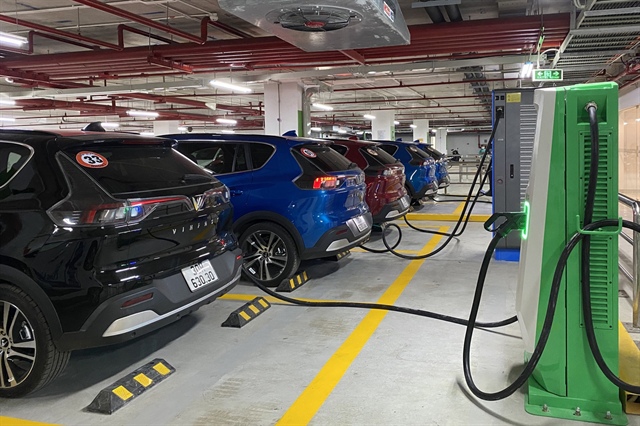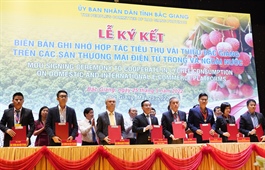Slow drive for electric car development in Vietnam
Slow drive for electric car development in Vietnam
Electric car development is an inevitable trend in the world and Vietnam hopes to ride the wave.

Vietnam aims to strongly develop electric cars by 2050 |
Huge room
According to the Vietnam Industry Agency under the Ministry of Industry and Trade, no domestic manufacturers other than VinFast have seriously invested in developing electric cars, which are also not as popular in Vietnam as in some other countries.
Pham Tuan Anh, deputy director of the Vietnam Industry Agency, said VinFast launched the first electric car model VF e34 in Vietnam in March 2021. According to the company’s announcement, it had received 25,000 orders and nearly 2,000 cars were handed over to customers in January 2022.
Mitsubishi has brought electric car models to Vietnam for testing, while KIA is planning to assemble electric vehicles at the THACO Chu Lai. In addition, Honda Vietnam is promoting cooperation with the Hanoi University of Science and Technology to study the use of hybrid vehicles, while Mitsubishi has conducted research on the suitability of using BEV and PHEV vehicles in Vietnam.
According to the Vietnam Register, the number of electrified cars in Vietnam remains very low, with 140 vehicles in 2019, 900 in 2020 and 1,500 in the first quarter of 2021. Almost all are hybrids and plug-in hybrids, while battery-powered vehicles account for a very small percentage. In addition to limited infrastructure, Vietnam has adopted almost no incentive policies to encourage the development of electric vehicles except for excise tax rates, which are lower than those imposed on gasoline/diesel vehicles.
Three major pillars
The development of electric cars will depend on three major pillars - the legal framework, government support policies and promotion measures.
The Vietnam Automobile Manufacturers’ Association (VAMA) proposed formulating an automobile industry strategy in line with the growing global trend toward electric cars that contributes to Vietnam’s commitment to net-zero carbon emissions at the 26th United Nations Climate Change Conference (COP26). Deputy Prime Minister Le Van Thanh asked the Ministry of Industry and Trade to study policies in response to the VAMA proposal.
Under the direction of the prime minister, the Ministry of Industry and Trade has been coordinating with ministries, departments, associations and businesses to develop a strategy for Vietnam’s electrified automobile industry by 2035, with a vision to 2050.


























